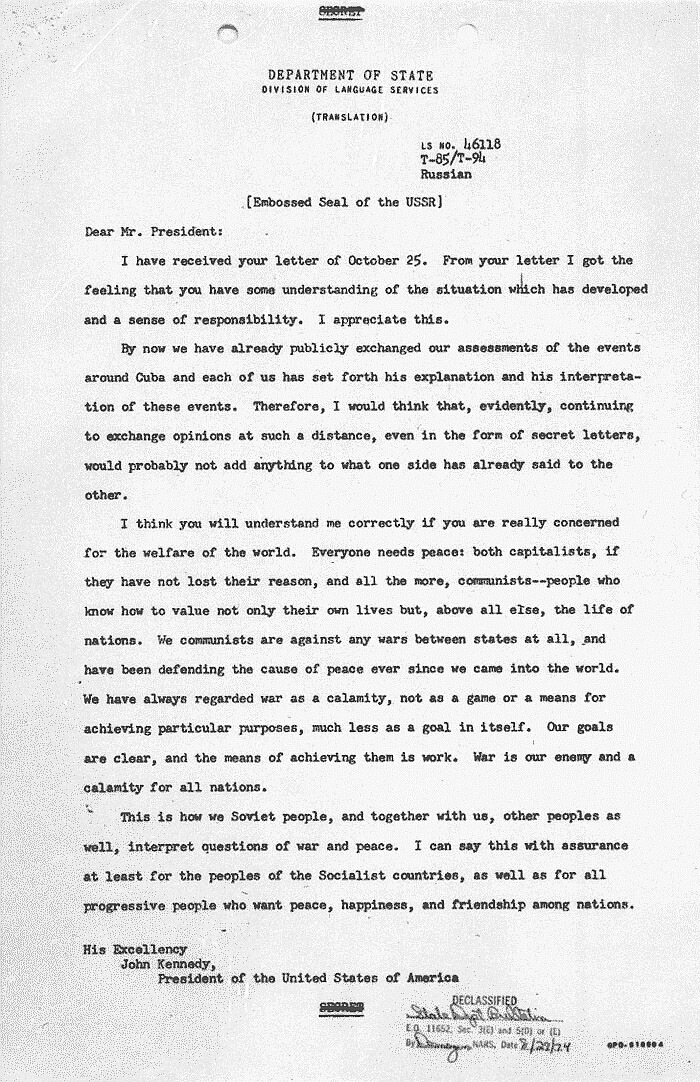De-escalation and Disarmament
Through careful negotiation and level tempers, Kennedy and Khrushchev were able to come to an agreement to diffuse the situation in Cuba. In exchange for the United States removing nuclear warheads from Turkey, the USSR would remove their nuclear warheads in Cuba and withdraw from the country. Kennedy agreed to these terms and vowed to leave Cuba to its own devices upon the USSR’s withdrawal.
This event marked the end of the Cuban Missile Crisis and an end to the most intense weeks in human history. Without the calm and rational actions of both leaders, the world could have very well been plunged into nuclear warfare and the world as we know it today may not exist.
The removal of nuclear weapons in Cuba not only prevented an imminent nuclear conflict but also set the stage for increased dialogue between the United States and the USSR. This crisis demonstrated to the world the ability for all out nuclear war to take place in a matter of minutes and reaffirmed the idea that nuclear treaties needed to be drafted. In the aftermath of the Cuban Missile Crisis, both the United States and USSR initiated efforts to establish more robust communication channels and promote arms control agreements.
The lessons learned from the Cuban Missile Crisis resonated globally, emphasizing the importance of global cooperation to prevent the threat of nuclear conflict and helped to usher in new policies that would prevent the ongoing stockpiling of nuclear weapons.

